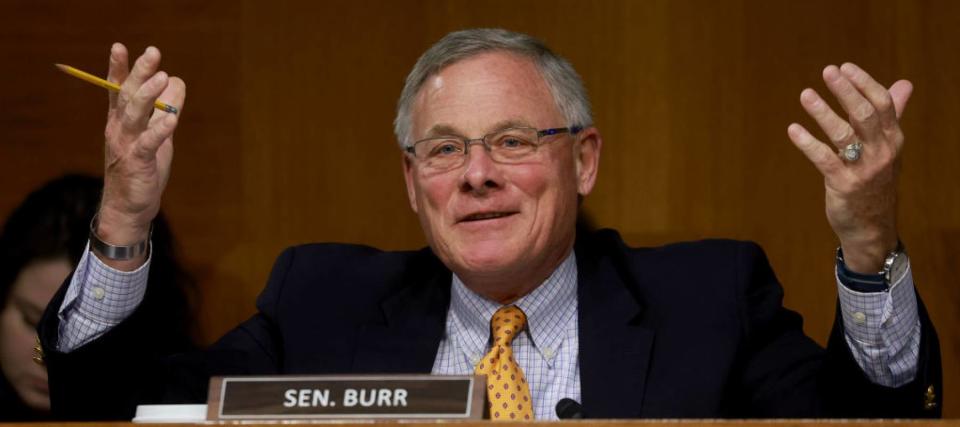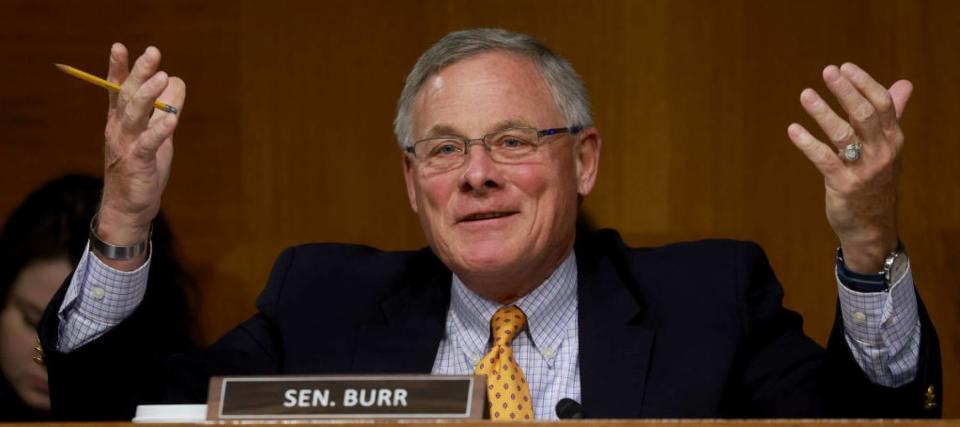
Getting out of stocks right before a market crash seems like a smart move. But when then-Senator Richard Burr sold a bunch of stocks at the onset of the COVID-19 pandemic, it caught the attention of the U.S. Securities and Exchange Commission.
Court filings suggest that the former North Carolina Senator sold $1.65 million worth of stocks on February 13, 2020, right before the pandemic-induced market tumble. The SEC was investigating whether Burr sold stocks “on the basis of material nonpublic information.”
Luckily for Burr, the SEC ended its probe this month without taking action.
“This week, the SEC informed me that they have concluded their investigation with no action,” Burr said in a statement. “I am glad to have this matter in the rearview mirror as I begin my retirement from the Senate following nearly three decades of public service.”
Whether politicians should be allowed to trade stocks has always been a contentious subject. Some believe there’s a conflict of interest, while others argue that everyone has the right to invest their money as they see fit.
Whichever side you’re on, it’s hard to deny that politicians can make some shrewd moves in the stock market. Here’s a look at two stocks that have drawn the attention of U.S. lawmakers.
Don’t miss
Microsoft
Tech stocks haven’t exactly been market darlings lately. Microsoft (NASDAQ:MSFT), for instance, is down 26% over the past 12 months.
But the software gorilla remains a hot trade for politicians.
According to data from CapitolTrades, 22 U.S. lawmakers made a total of 150 trades on Microsoft in the past year — including 75 buys and 75 sells.
While market sentiment isn’t bullish on tech at the moment, Microsoft’s business is still on the right track.
In the September quarter, revenue increased 11% from a year ago to $50.1 billion. On a constant currency basis, revenue growth was a more impressive 16%.
Notably, revenue from Microsoft’s Intelligent Cloud segment rose 20% year over year to $20.3 billion.
Given the downturn in its share price, Microsoft could give contrarian investors something to think about.
Johnson & Johnson
With deeply entrenched positions in consumer health, pharmaceuticals and medical devices markets, health care giant Johnson & Johnson (NYSE:JNJ) has delivered consistent returns to investors throughout economic cycles.
Many of the company’s consumer health brands — like Tylenol, Band-Aid and Listerine — are household names. In total, JNJ has 29 products each capable of generating over $1 billion in annual sales.
Not only does Johnson & Johnson post recurring annual profits, but it also grows them consistently: Over the past 20 years, the company’s adjusted earnings have increased at an average annual rate of 8%.
JNJ announced its 60th consecutive annual dividend increase last April and now provides an annual dividend yield of 2.6%.
The stock is also demonstrating its resilience in this ugly market: while the S&P 500 plunged 19.4% in 2022, JNJ was up 3% for the year.
So it’s no surprise that politicians are making trades on this stock. CapitolTrades data suggests that 14 U.S. lawmakers made 38 trades on JNJ over the past year — including 24 buys and 14 sells.
What to read next
This article provides information only and should not be construed as advice. It is provided without warranty of any kind.







